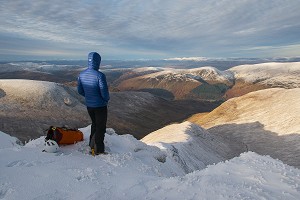
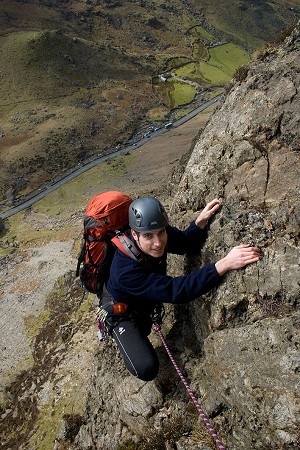
This article details the remit of the award, how to register for it and what exactly it covers. This article has been produced in conjunction with the Mountain Leader Training Association (MLTA).
VIDEO: Mountain Instructor Award
The Course
The main job of an MIA is to help clients become self-reliant climbers and mountaineers in summer conditions. You'll pass on experience and technique, while clients enjoy a challenging and enjoyable day out in a safe and relaxed setting.
The Mountain Instructor Award (MIA) is aimed at experienced mountain leaders and instructors working in summer conditions (you have to hold the ML to register for the MIA). The depth of content is considerable and includes technical aspects, skills acquisition and teaching strategies for multi-pitch rock climbing and scrambling, as well as background knowledge of the mountain environment.
NB: If you want to teach/guide winter walking you'll need the Winter ML, and if you want to teach winter climbing/mountaineering, you'll need the MIC.
Reviews are now in progress for both the MIA and MIC schemes, to ensure that the qualifications remain at the cutting edge of instructional qualifications and the MLTUK is setting up a parallel coaching qualifications structure.
AMI
The Association of Mountaineering Instructors (AMI) is the representative body for professionally qualified Mountaineering Instructors in the UK and Ireland, and offers benefits such as insurance, support, representation and networking.
What's the difference between the MIC and the MIA – other than the fact that the MIC covers winter mountaineering skills, the syllabuses seem the same?
"To use an analogy, A level maths is both similar and yet very different to degree level maths. The former is a necessity for the latter to 'make sense', and those teaching the latter assume a host of skills and knowledge covered by the former.
The winter environment is potentially more challenging and serious than the summer environment, and winter climbing is very different to summer climbing. The MIA and MIC are being reviewed and maybe there is a case for the syllabus wording to be more illuminating."
Jon Garside, MLTE Training Officer
Award Holder Profile - Jamie Bankhead
"I've been working for the Ice Factor as a qualified MIA for two and a half years. I'm not on the hill all the time but time spent instructing indoors and doing climbing wall admin makes my days out all the more valuable. My work is constantly challenging and varied. Some clients take their first steps on real rock with me; others start leading or move onto multi-pitch. Aspirant mountaineers might learn rope work for scrambles, while other clients are simply looking for a safe, guided day out. I particularly enjoy building a rapport and achieving a progression with clients over multi-day courses.
You have to be adept at making quick decisions when you take a client outdoors 'on-sight'. There are two main variables: the Scottish climate and the client. Dry rock is good for the soul and makes teaching easier. Some clients amaze with how much they can take aboard, while for others memorising a couple of knots and some climbing calls is the sum total. The challenge is working out what's achievable for each individual in what can be an unhelpful environment.
The MIA training course is gruelling. Nine days of information is a lot to take in, although it is difficult to see how this could be reduced. It's a technical and skills-based award, which requires a high level of critical judgement. This is acutely underlined the first time one is on a fixed rope alongside a struggling leader or practising a rescue scenario where misplaced knots could be catastrophic. I see the award as a starting-point to build on. I think in a small, subtle way I do so every time I go out."
Jamie is Centre Manager at the Ice Factor: www.ice-factor.co.uk
Qualifying to register for the award
You need to be at least 20 years old, hold the ML and have logged 20 quality mountain days as a leader in sole charge of a mixed group, after gaining your ML. You should be able to present a sample list of 30 named multi-pitch rock climbs of VS4c or above, which you have led in at least three main UK climbing areas. Most should be on mountain crags and major sea cliffs. At least 10 should have been climbed within the last 12 months.
You also need a Mountain Instructor, Guide or ML Centre staff member to endorse your registration. A long term climbing partner or suitable employer will be considered if you can't get this.
What is a quality mountain day?
Quality mountain days should involve planning, exploration and navigation. As a rough guide, you should need a map and compass while you're out there, and you should feel the sense of achievement of having had a satisfyingly strenuous day out when you get back. Log a broad range of days from the lowest fells to the highest peaks. While experience abroad is valuable, the MIA is a UK-based qualification, so your experience needs to reflect this.
Training, consolidation and assessment
Training courses are 9 days long, and you'll get feedback about what you need to work on during the consolidation period as you go. You will normally have to gain experience over at least 12 months before taking assessment. If you have great experience, you can apply to have the consolidation period reduced.
Over the 12 month period, you need to log another 20 quality mountain days as a leader in sole charge of a mixed ability group, 20 rock climbing teaching days, 20 more multi-pitch climbs at VS4c or above in three major climbing areas of the UK, a large proportion of which should be on mountain crags and major sea cliffs.
You will also need to study all aspects of the mountains and mountaineering, including the mountain environment and British mountaineering history, ethics and traditions.
The syllabus
Climbing and Mountaineering Skills: Personal and Instructional
Lead multi-pitch rock climbs of at least VS4c standard with both confidence and safe technique, and have a broad knowledge of a wide range of mountaineering and rock climbing equipment.
Be able to assess the ability of a group, and organise a safe, enjoyable and educational day of rock climbing instruction. Be confident teaching bouldering, climbing, top-roping, abseiling, lowering, advanced ropework and leading on single and multi-pitch climbs. Structure indoor technical sessions for both novice and experienced climbers.
Choose routes to suit a group, taking into account their ability, the weather and the conditions. Show effective group management skills for descending or retreating from a rock climb or from steep broken ground – including use of the short rope technique on scrambling or rocky terrain. Be able to structure instruction sessions for clients from novices to committed mountaineers and rock climbers, and teach all aspects of navigation.
Demonstrate climbing and mountaineering knowledge with a mini lecture targeted at your peers, which will be followed by a discussion. Also prepare an educational and entertaining mountain lecture suitable for a large audience with mixed mountain experience.
Be able to instruct and assess the ML, SPA and local accreditation schemes.
Rescue Techniques
Carry and know how to use mountain rescue equipment for general and crag rescue situations. You'll also need to be able to assess an accident scene and carry out appropriate action, including casualty handling, knowledge of a variety of stretcher lowers and controlling the safe movement of a rescue team.
Knowledge of how to improvise rescue techniques using normal climbing equipment is also necessary: for example abseiling, lowering, hoisting, escaping the system and prussiking.
General Knowledge
Good, general background knowledge of the mountain environment and the history of mountaineering are essential to the MIC. You should be able to enthuse and educate others about mountain geology, natural history, flora and fauna, managing human pressures on wild country and conservation.
With regards to the history of mountaineering, you should read a wide range of mountain literature including instruction handbooks and guidebooks and understand the structure of the main mountaineering organisations.
Sample course content
Single pitch climbing
Crag use with different types of group, the Single Pitch Award and beyond, using single pitch crags and sea cliffs at a higher level.
Problem solving
Hoists, lowers, escaping the system, retreat from multi-pitch crags.
Multi-pitch climbing
Route choice/ finding, placing protection, belays and stance management, rope systems and management.
Multi-pitch teaching and lead climbing
Teaching skills 'on the move', preparing students to lead, protecting yourself and a student leader
Problem solving in a multi pitch setting
Simple solutions for simple problems, putting into practise skills learnt on the introduction day,
evacuation scenario
Navigation techniques
Personal skills, teaching strategies at all levels, standard of navigation for national awards.
Mountain days
Scrambling techniques with students, short rope techniques, interpretation of the environment, short pitches and direct belays, steep ground and rope work for the mountain leader.
Group adventure activities
Sea level traversing, gorge scramble or similar, tyroleans and clip lines, other relevant ropework
Evening lectures covers aspects such as climbing equipment, climbing walls, teaching skills, the role of AMI and insurance.
- Therm-a-Rest Navis Sleeping Bag 7 Jul, 2013
- Polvere Ski Mountaineering Skis 23 Apr, 2013
- Rab Infinity Down Jacket 7 Apr, 2013
- COMPARISON REVIEW: Mountain Hard Shells 4 Apr, 2013
- The Questionable Ethics Of Down Production 10 Jan, 2013
- VIDEO: The 1922 Trek To Everest Base Camp 23 Sep, 2012
- WITH VIDEO: NEW TNF Summit Series Meru Range 12 Sep, 2012
- Autumn/Winter 2012 Polartec NeoShell Mountain Clothing 7 Sep, 2012
- Patagonia Ultralight Down Jacket 5 Jul, 2012
- Barmasse Attempts North Face Of Karakorum's 'Ogre' 21 Jun, 2012

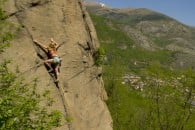

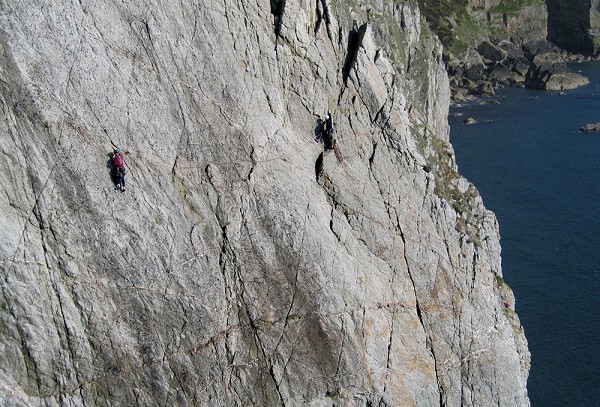
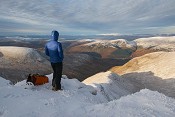


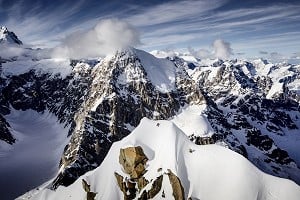

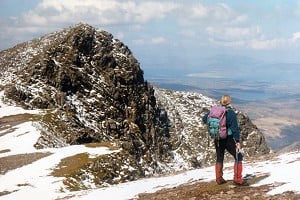
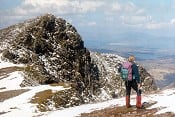
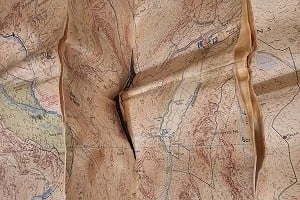
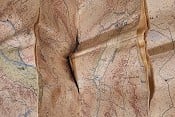
Comments